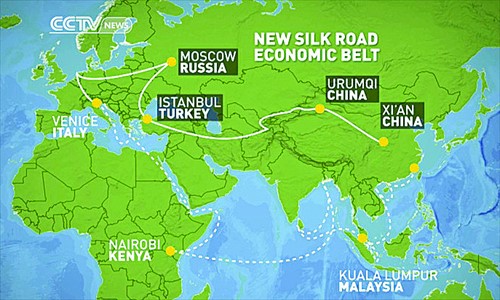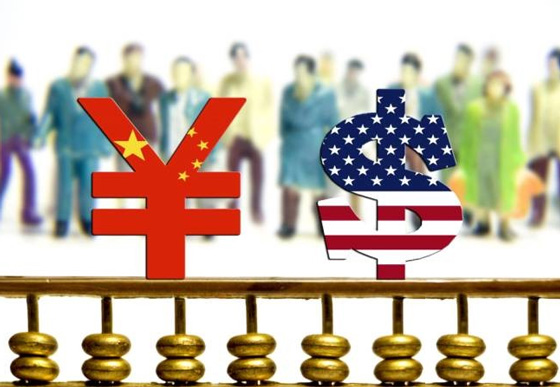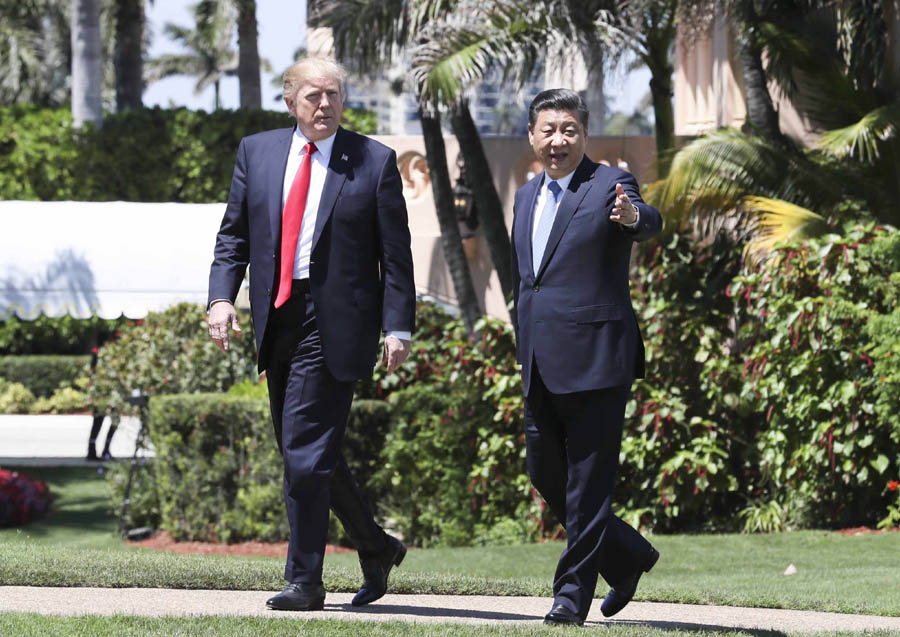Yu Xiang, Senior Fellow, China Construction Bank Research Institute
Apr 27, 2017
Trump’s election campaign promises and and the executive orders the new president signed after he came into the White House reveal a narrow-minded, conservative and selfish United States. It’s a startling reversal of the country’s outlook for six decades, and completely outdated.

Kemel Toktomushev, Research Fellow, University of Central Asia
Apr 27, 2017
It has been four years since One Belt, One Road (OBOR) was first announced, but the prospects of OBOR’s impact on Central Asia remain unclear, while the commitment of Beijing to invest $40 billion into Central Asia’s poor and deteriorating infrastructure have not materialized.The diversity of views on OBOR demonstrate that OBOR is far from being a complete product. It is an evolving concept, which is yet to be finalized. Accordingly, in the context of Central Asia, it remains unclear what form OBOR will take. Is OBOR a qualitatively new endeavour to be implemented in the region? Or, is it simply a rebranded form of Chinese pre-existing infrastructure projects, unified under the aegis of the Silk Road discourses?

Christopher A. McNally, Professor of Political Economy, Chaminade University
Apr 19, 2017
Why has there been such a tidal change in the U.S.-Russia-China strategic triangle? The reason is simple: the United States and China are deeply enmeshed over a broad spectrum of politico-economic relations. Russia, on the other hand, is a straight forward strategic competitor and, within the international economic order, by and large a natural resource exporter.
Apr 18, 2017
2017 will likely be one of the most challenging years in decades for US companies in China.
Daniel R. Pearson, Senior Fellow, Trade Policy Studies, Cato Institute
Apr 13, 2017
The trade deficit is driven by U.S. government policies that influence domestic savings and investment, not by the policies of governments overseas. Unfortunately, the executive order seems premised on the mistaken notion that fixing trade-distorting policies of other countries would reduce the U.S. trade deficit.
Sam Beatson, a Senior Economic Analyst
Apr 13, 2017
The performance of Chinese and U.S. shares are rarely compared side-by-side. Together though, they tell the story of the gains that have been available to investors over the past decades, in what are now regarded as the two largest economies—and most capitalised stock markets—in the world.
Shen Lu, Master's Student at Medill School of Journalism, Northwestern University
Apr 13, 2017
All the efforts Chicago has made to woo Chinese corporations, along with the resulting economic, cultural, and academic benefits both sides have enjoyed, might be curbed by growing inward-looking policies.

Dan Steinbock, Founder, Difference Group
Apr 11, 2017
Despite preliminary pessimism, the Trump-Xi Summit showed greater trade pragmatism than initially expected, even though it was overshadowed by a raw display of U.S. military power.
Li Bin, Professor, Tsinghua University
Yang Xiao, Deputy Director of Institute of Maritime Strategy Studies, China Institute of Contemporary International Relations
Apr 10, 2017
On March 31, U.S. President Donald Trump signed two executive orders to review the reasons why United States has trade deficits with some of its trading partners. The U.S.-China trade deficit is certainly an important topic of the review.
Lawrence Lau, Ralph and Claire Landau Professor of Economics, CUHK
Apr 05, 2017
Lawrence J. Lau reviews the highlights of the nation’s annual NPC and CPPCC meetings to check the health of its economy and society, and finds the progress in both areas encouraging, not least the successes in judicial reform.
Back to Top

- China-US Focus builds trust and understanding between the U.S. and China through open dialogue among thought leaders.
- Our Offerings
- Topics
- Videos
- Podcasts
- Columnists
- Research Reports
- Focus Digest
- Stay Connected
-
Thanks for signing up!
- Get the latest stories from China-US Focus weekly.